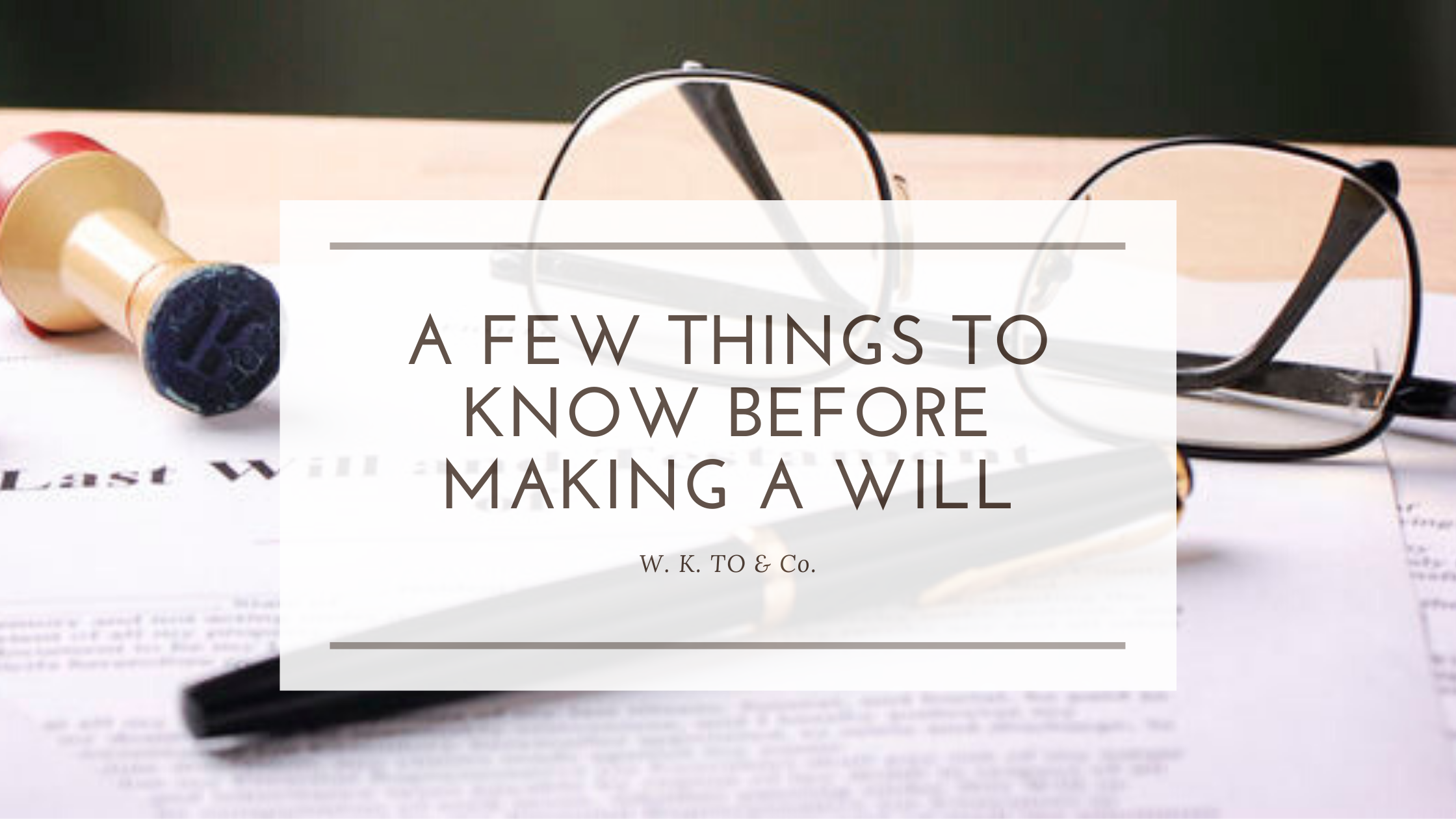Many of us have put off making a will out of undue fear that doing so will bring forward our inevitable fate – death. Will writing is still a taboo among some of us, but passing away without a valid will would leave the decision about the succession of one’s estates up to rigid intestate statutory rules, and cause family strife in addition to their grief of losing the loved one.
Why do you need a will? To put it simply, a will can ensure your money, assets, property and personal valuables or items with substantial value to be distributed according to your true wishes after your death. While the making of a will is entirely voluntary, having an effective one is very desirable regardless of the size of your estate.
Before drawing up such an important document, let us consider a few key issues of inheritance laws in Hong Kong.
What happens if I die without a will?
If a Hong Kong resident dies intestate (i.e. without a will or the will has been revoked), his assets will be distributed according to the Intestates' Estates Ordinance (Cap. 73). The matter will be complicated by issues of “domicile” if the person dies outside Hong Kong.
Essentially, the intestate estate will be distributed by the following order:
- the spouse
- the children (both the legitimate and illegitimate)
- the parents of the deceased
- the siblings of the deceased
- the grandparents of the deceased
- the uncles and aunts of the deceased
The exact ratio of the distribution turns on which relatives the deceased was survived by. As an illustration, if the deceased leaves behind both spouse and children, the spouse will be entitled to all the personal chattels of the deceased, a net sum of HKD 500,000, and half of the remainder of the estate. The rest shall be divided among the children in equal shares.
On the other hand, if the deceased passes away without children, but leaves behind spouse and parents, the surviving spouse will acquire all the personal chattels of the deceased, a net sum of HKD1,000,000, and half of the remainder of the estate. The other half of the remainder shall be shared between the deceased's parents.
Considering the above, the distribution of your estate may not necessarily reflect your true wishes in the absence of a will.
How is a valid will made?
Any person of sound mind who has reached 18 years old may make a will. Following the Wills Ordinance (Cap. 30), a will is valid if it is:
- in writing and signed by the testator (or by someone on his instruction and in his presence);
- the signature is made in the presence of two witnesses, and each witness either attests and signs the will, or acknowledges the signature, in the presence of the testator (but not necessarily in the presence of other witness); and
- it appears that the testator intended by his signature to give effect to the will
The witness and his/ her spouse should not be a beneficiary under the will. If that is the case, the bequest to the beneficiary under the will in question is forfeited.
Why should I engage a solicitor to draft the will even this is not legally required?
While it is possible to prepare your own will, it is advisable to instruct a solicitor for drawing up one. This would ensure your will truly reflects your wishes and is protected against unknown pitfalls; more importantly, you potentially save your loved one's time, cost and unnecessary stress.
Key advantages and relevant services:
- Ensuring that your will is valid and reflects your true intention
- If you have overseas property and assets, we may advise you on how to cover them in your will and provide information on the administration of foreign estate
- Applications for grants of probate
- Keep your will in a safe place
- Advice on and drafting of Enduring Powers of Attorney
Can I change my will afterwards?
You can certainly change your will whenever you think necessary, indeed you are highly recommended to make a new will upon your marriage, divorce, or any of your beneficiaries passes away prior to your death.
Where should I keep my will?
You should keep your will in a safe place and let the person you trust knows where it is. Your executor/ beneficiaries need your will after your death to apply for a Grant of Probate in respect of your will. Your solicitor may provide service for safekeeping of your will.
Conclusion
Having a valid will in place is important for providing financial security to your loved ones, and it also brings you the peace of mind knowing that your last wishes will be taken care of at your death.




